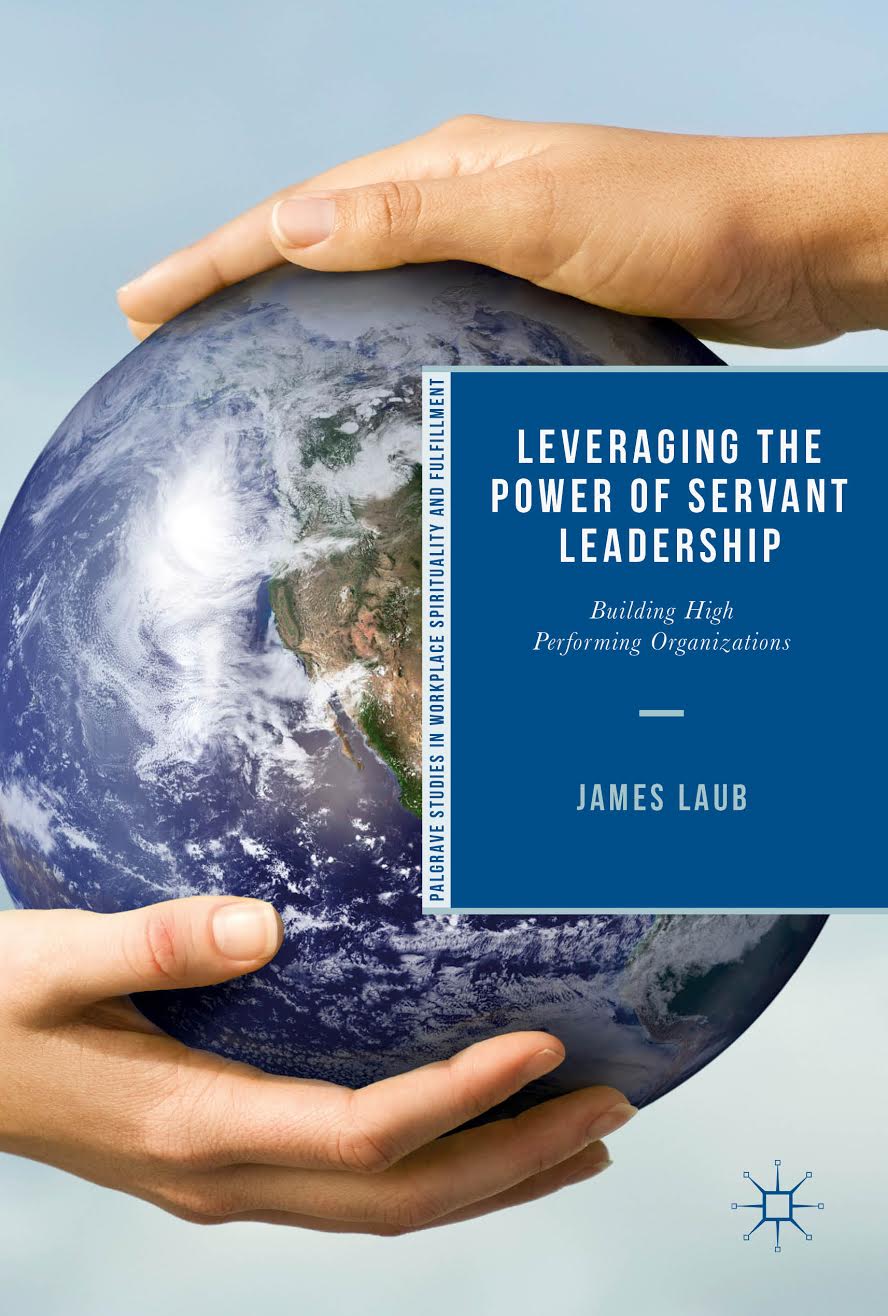Leveraging the Power of Servant Leadership: Building High Performing Organizations
Author: James Laub, Ed.D.
Publisher: Palgrave Macmillan
To review the book on the Palgrave site: https://www.palgrave.com/us/book/9783319771427
Servant leadership has too often been characterized as a soft and ill-defined approach to leadership that appeals only to leaders with quiet personalities and so will not work well in the hard-driving world of today’s organizations. This text addresses these, and other misconceptions, to take a hard look at the incredible power of servant leadership leveraged through leaders in all types of organizations. Yes, servant leaders use power and learning to leverage this power is the secret to effective leadership leading to higher performing organizations.
This book is designed for:
- Current undergraduate and graduate leadership courses focused on servant leadership, this book may be used as a primary text presenting a comprehensive, research-based approach to understanding and practicing servant leadership and its relationship to more traditional approaches to leadership.
- Current leadership courses that desire to include an academic approach to servant leadership, this book may be used as a supplementary text in addition to the leadership theory oriented texts normally used in leadership foundation courses.
- Leadership development trainers within organizations who desire a connecting text between a scholarly approach and a practical application of servant leadership to the organizational setting. The connection with the Organizational Leadership (OLA) Assessment makes this especially usable by leadership development practitioners.
- For organizational leaders who desire to understand what leadership is at its core and what their own mindset of leadership may be and how this mindset is affecting their leadership practice and the resulting health of their organizations. Again, the OLA assessment piece makes this usable for practitioners who desire to improve their leadership practice.

Seven Basic Assumptions about Leadership presented in this book:
The following seven assumptions are woven throughout this book and will be explained and developed under a consistent theme of moving the world through the power of servant leadership.
- The purpose of leadership is to move the world
- Every person has the capacity and the responsibility to lead
- Leadership and servant leadership can and should be clearly defined
- Leadership matters and our mindset (leveraging) of leadership power matters most of all
- Leadership is most effectively leveraged out of a servant mindset with a view toward putting the good of others before the leader’s self-interest
- Power is available to each leader and must be leveraged for positive world-changing leadership to occur
- Servant leadership is best clarified in contrast to the Parental (Paternalistic) and Autocratic (Authoritarian) mindsets of leadership
How this book differs from other leadership texts:
This book differs from traditional leadership texts in that it seeks to establish a solid, consistent framework of definition before moving on to the various theories and applications of leadership. This book provides a consistent model to understand leadership as a dynamic combination of vision, action, mobilization and change. It presents a proven and effective model of servant leadership but It differs from most books on servant leadership in that it presents a research-based, academic view of the subject that is appropriate for the college classroom as well as the serious student of leadership within organizations today. The book presents a comprehensive model of servant leadership while contrasting it to the other mindsets of autocratic and paternalistic leadership. This model of servant leadership can be taught to individuals and groups and assessed within organizations through the Organizational Leadership Assessment (OLA).
This book was written in an effort to bridge the gap between the academic, scholarly work of the university and the practical realities of leadership within organizations, communities and society at large. It is researched-based and true to the tradition of leadership studies while offering a non-traditional approach to the understanding and practice of leadership. This book seeks to present an academic approach joined to a clear, understandable and readable challenge for students to go beyond merely knowing about servant leadership to its effective practice.
